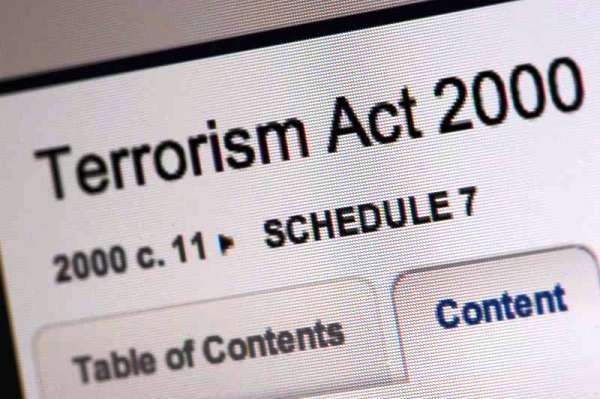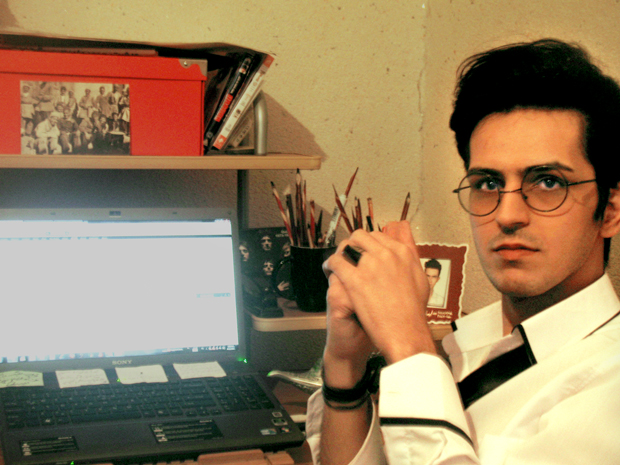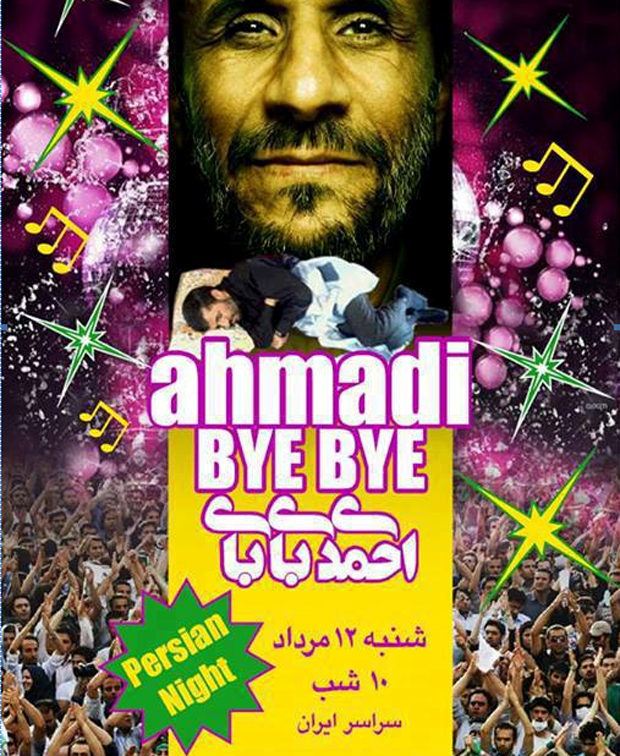20 Aug 2013 | News and features
 I don’t have a problem with sending journalists to gaol.
I don’t have a problem with sending journalists to gaol.
Sometimes we break the law, and sometimes we do it in ways that are not defensible as being in the public interest, or for reasons that are not related to our journalism. I also think it’s okay for the police to detain and question journalists, as they may anyone else. I work on the assumption that we should all, as citizens, respect the rule of law and act within legal constraints – a big part of any journalist’s training covers legal issues around contempt, defamation, confidentiality and copyright.
I don’t even want special protection under the law as a “journalist” because then someone has to decide who counts as one, and as we’ve seen in the UK with the debate over the Leveson inquiry, that quickly ends up with some sort of state-approved licensing mechanism which none of us would find acceptable.
If there is to be protection then it should cover “acts of journalism”, no matter who commits them, and it should by and large rely on case law established by brave people taking risks to make information public and then defending their actions, also in public. As a working journalist I’m prepared to make promises to sources that could result in my spending time in prison, and I respect those of my colleagues who have put themselves on the line to establish the boundaries of acceptable journalistic practice.
Unfortunately, while we in the press have by and large played fair, it’s now clear that the state hasn’t. The revelations about the way the NSA and GCHQ operate have confirmed the view that many agents of the state either consider themselves outside the law or feel confident that the laws have been written to allow them to act in the ways they wish. They make it impossible to respect the law as it stands, and impossible to argue that we as citizens must simply obey laws that have been written to take away our liberty, our freedom to speak without being monitored, and our ability to act to change the world for the better whether by speaking truth to power, telling the world what is really going on, or campaigning in the streets and online to reform laws and practice.
This week’s detention of David Miranda under the UK’s Terrorism Act is a defining point. Miranda may have been carrying digital copies of secret documents made available to Laura Poitras and his partner Glenn Greenwald, but that does not make him a credible suspect in an investigation into terrorism, except to a paranoid state whose laws have been written to allow the security services unfettered power to detain and investigate anything they consider threatening.
But of course, that is what we have. Here in the UK the word “terrorism” has been stripped of all meaning so that it can routinely be used to cover any activity that the state does not fully approve of, or anything that might disrupt the free operation of the security apparatus ostensibly built to protect us from that same “terror”.
As a result many activities, from campaigning to marching to writing to helping uncover a vast, illegal conspiracy to surveil and monitor the entire internet, is covered by provisions of anti-terror legislation passed by frightened legislators willing to be persuaded that such draconian powers would only be used against clearly wicked people planning clearly horrible acts of mass murder. They were unable or unwilling to foresee that it would be used to hound journalists or those working for newsgathering organisation or that it would be used to justify oppression of anyone who stands out against any government policy. This is the security state, and while we may have watched it being assembled brick by brick in the last decade, the final brick snapped into place this week.
It is time for us to call on Obama, Cameron, Clegg and the other architects of oppression to “tear down this wall“. And yes, the irony of finding that I need to quote Ronald Reagan has not escaped me.
Bill Thompson is a writer and broadcaster. This post was originally published at The Bill Blog
14 Aug 2013 | Iran, News and features, Politics and Society, Religion and Culture

Payam Feili (Photo: Nogaam)
Iran’s government has been increasing pressure on writers and artists over the past few years, but its heavy hand does not strike evenly.
Iranian poet Payam Feili, who is a gay man, is the victim of a brutal system. He was fired from his job, his translator’s house was ransacked, and the censors have shunned him.
Isolated in Iran, Feili has dedicated himself to writing. He says he lives among his ideas, a citizen of his mind: “I’m writing on the edge of crisis but I think I am doing fine. I’ve gotten used to life being full of tension, horror, disruption and crisis”.
Born in 1983, in Kermanshah, a city in western Iran, Feili has faced insurmountable obstacles as an author who, with pen as sword, is fighting back against social, cultural and political taboos. Despite the endorsement of renowned Iranian Simin Behbahani and the backing of one of Iran’s biggest publishers, Feili’s work has only once emerged from the Ministry of Culture and Islamic Guidance with a seal of approval.
Feili’s first book, ‘The Sun’s Platform’, was published in Iran in 2005, but dozens of other works submitted to the ministry have been refused publishing permission. Payam is blacklisted, not just for his words, but for his sexual orientation.
“They refused my books, one after the other, without any explanation. They have a blacklist of authors who are simply not allowed to publish anything. Even my apolitical non-religious works, works of pure poetry, were banned. There’s nothing scary about them, but the state authorities are afraid of everything”
Observing his sharply delicate words falling from the pages of history unread, Feili began publishing his books outside Iran, knowing all too well that he was endangering himself. Officers from the Ministry of Intelligence ransacked his translator’s house and threatened him, forcing him to sever ties with Feili. After gaining notoriety abroad, the company Feili had worked for fired him without good cause. With the odds stacked against him, Feili insists on exercising his right to freedom of speech.
“If you read my books, it’s obvious I have not succumbed to self-censorship. My poems are bold and fearless. I don’t allow anybody, not me, not others, not even the Ministry of Culture and Islamic Guidance to censor my books”
Many are hoping for Rouhani’s presidency to bring around the cultural thaw that characterised Khatami’s two terms. Feili has not been swept up by the wave of hope that has captured his peers.
“Nothing essential has changed. The structure is still the same. It’s a play, a comic and ugly performance. They’re relying on the naivety of people to be able to succeed”
Embittered by 30 years of living in exile within the borders of his country, as a homosexual, and as a writer that challenges the status quo, Feili is now dedicating his time to securing funding to translate his poetry for audiences outside Iran.
“I’ve learned a lot and I know what’s going on in Iran. I know that when my homosexual narrative is woven through my words and there is a Star of David on the cover of my book, the censors won’t even bother opening it to find out what is inside. I just want to be published. I know the audience outside Iran is different, but I just want to be heard”.
This article was reported by Nogaam, a publisher of Iranian books and authors that have been censored, banned or blacklisted. Nogaam relies on donations from readers to publish their books for free download on their website. Payam Feili’s book ‘White Field’ was first published in Persian by Nogaam in London in July 2013. The publisher is currently seeking support to help Payam translate his poems, and fulfil his simple goal of being heard.
I Will Grow, I Will Bear fruit … Figs (First Chapter)
ONE
I am twenty one. I am a homosexual. I like the afternoon sun.
My Apartment is in the outskirts of town. Near the wharf. In a place that is the realm of seashells, the realm of corals, adjacent to the eternal sorrow of the turtles.
My mother lives in the waters. In the remains of an old ship. On a bed of seaweed. Her hair blazes like a silver crown above her head. My mother is always naked. She visits me every now and then. At my apartment in the outskirts of town.
She first crosses the wharf. She floats in the scattered scents of the bazaar. Then she pays a visit to the crowd of fishermen in the seaside cafés. Among their wares, a hidden pearl. And she leaves them and heads for my bed. Of course, along this entire route, she is no less naked.
Poker; that is what I call him. He is my only friend. We met during military training. He is twenty-one. He likes the afternoon sun and he is not a homosexual.
I consider this a threat. I have never talked to anyone about my sexual inclination. In fact, I hide it. Even from my few sexual partners. With them, I pretend it is my first such experience.
My sexual partners are night prowlers. Strangers. Poker is not a night prowler. Poker is not a stranger. And this is chipping away at me from the inside!
Payam Feili
Translated from the Persian by Sara Khalili | This translation appears on Feili’s blog.
This article was originally published on 14 Aug, 2013 at indexoncensorship.org. Index on Censorship: The voice of free expression
5 Aug 2013 | Iran, News and features

Iranians stormed the streets in celebration when his victory was announced, and this giddy optimism also permeated social media.
In the days after the election, there was an opening up of the national media, which has been steadily strangled over the past 8 years, as reporters and journalists tested the new waters to measure where the new limits of censorship have been set.
On July 23 the Iranian Students’ News Association announced Rouhani’s government may lift the filter from Facebook and other social networks, but after going viral, the article was deleted without explanation.
Iranians on social networks have started a campaign called “Rouhani, Mochakerim” [Rouhani, Thank You], a platform on which they seem to thank the new president for everything good in their everyday lives. One said, “I think Facebook needs to have a ‘Thank You Rouhani’ button” for Iranians”. Another quipped, “My phone’s had more battery life since Rouhani won the elections. Thanks Rouhani!”
Blogger Younes is very optimistic about Rouhani and hopes Iran’s relationship with other countries will be improved over the next four years. Younes described how Ahmadinejad’s foreign policies united the world against Iran. He pointed out that the invitations to Rouhani’s inauguration were sent to world leaders signalling that Iran is ready to change its position and open up dialogue with the outside.
Optimists aside, there are also those who are unsure whether Rouhani will be able to keep his promises. Twitter user thebrightriver has criticised Rouhani for the ministries he has proposed to the Parliament: “Rouhani has promised that he will create the Ministry for Women, but he hasn’t even chosen one woman as a minister! It’s good I didn’t vote otherwise I’d owe one to my conscience”.
Mohammad Hosseini Nejad argues Rouhani is not a magician, that radicalism is the biggest threat to his ability to fulfil his promises, and that his policies will only be implemented if all of the opposition factions join together to support him.
Rouhani’s victory has also created space for Iranians to publicly satirise Ahmadinejad. On Friday, Iranian Twitter users ridiculed Ahmadinejad’s government using the #AhmadiByeBye hashtag, and sent an invitation to social media users to attend Ahmadinejad’s Goodbye Party on Saturday, 3 August 2013.

Farzad said, “Ahmadinejad has claimed that he fought economic corruption, but everyone connected with him was involved in the biggest embezzlement in Iran’s history. #AhmadiByeBye” Hooman agreed, “These 8 years have shown me how just one mistake can destroy life of an entire generation. #AhmadiByeBye”.
While the atmosphere, at least on social media, is one of optimism, Rouhani’s road ahead is tough. For the next four years he will battle against the supreme leader and the Parliament to implement some of his more ambitious promises. Despite being a figurehead for Iran when it comes to the country’s public relations, the president has relatively limited power and will struggle to liberalise the country.
This article was reported by Bronwen Robertson and Amin Sabeti of Small Media. Small Media has collaborated with the Munk School on launching ‘Rouhani Meter’, where Rouhani’s policies will be tracked across the first 100 days of his candidacy and beyond.
 I don’t have a problem with sending journalists to gaol.
I don’t have a problem with sending journalists to gaol.


